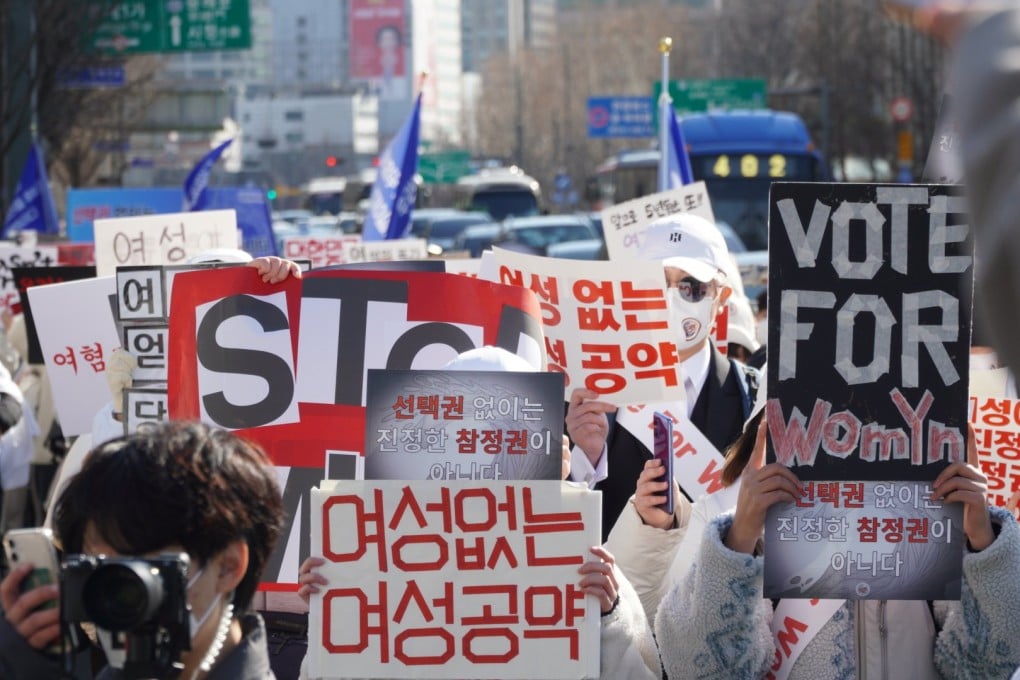South Korean women throw down the gauntlet to ‘anti-feminist’ president-elect Yoon Suk-yeol
- The People Power Party candidate was elected after playing to the fears of young men who felt threatened by women’s rights, but he won only by the thinnest of margins
- While the election result was a disappointment for many women, activists say the close race shows that momentum is on their side

Yoon, of the conservative People Power Party, beat his rival Lee Jae-myung of the Democratic Party, in last week’s poll by a whisker, taking 48.56 per cent of the vote to Lee’s 47.85 per cent.
While many supporters gathered at Yoon’s home to shower him with praise, others had a very different reaction. The terms “immigration to Canada”, “candlelight protest” and “No. 2 man” – a derogatory term for Yoon’s male supporters – have been trending on South Korean Twitter ever since.
“I feel ashamed that I live alongside men who would vote for someone who wants to exclude women in the country even more,” said Soo-yeon, 18, a student in Seoul who voted for the first time and criticised Yoon’s plans to get rid of the national wage and privatise health care.
Now these issues are exposed for everyone to see